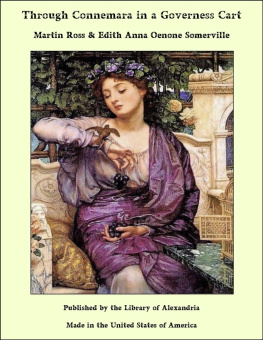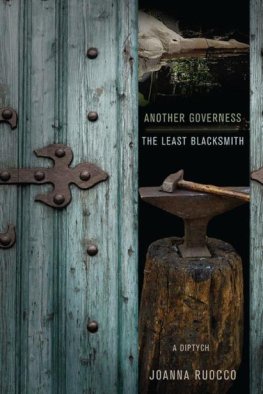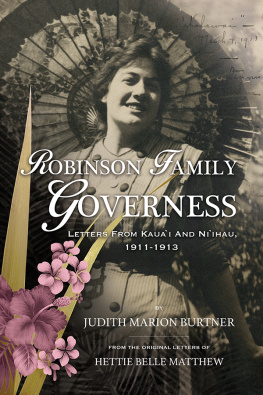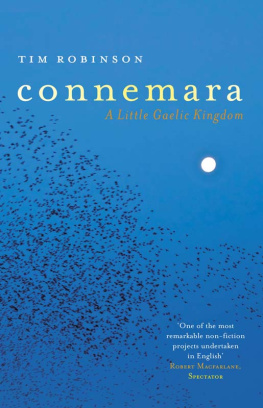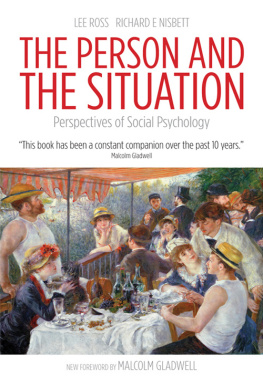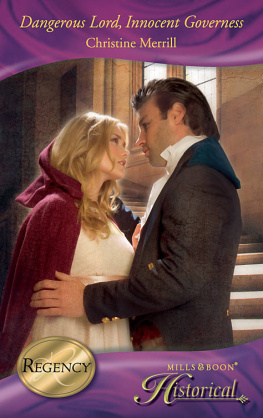CHAPTER I.
M Y second cousin and I came to London for ten days in the middle of last June, and we stayed there for three weeks, waiting for a fine day.
We were Irish, and all the English with whom we had hitherto come in contact had impressed upon us that we should never know what fine weather was till we came to England. Perhaps we came at a bad moment, when the weather, like the shops, was having its cheap sales. Certainly such half-hours of sunshine as we came in for were of the nature of soiled remnants, and at the end of the three weeks aforesaid we began to feel a good deal discouraged. Things came to a climax one day when we had sat for three-quarters of an hour in a Hungarian bread shop in Regent Street, waiting for the rain to clear off enough to let us get down to the New Gallery. As the fifth party of moist ladies came in and propped their dripping umbrellas against the wall behind us, and remarked that they had never seen such rain, our resolution first began to take shape.
Hansom! said my second cousin.
Home! said I.
By home, of course we meant the lodgingsthe remote, the Bayswaterian, but still, the cheap, the confidential; for be they never so homely, theres no placefor sluttish comfort and unmolested unpunctualitylike lodgings.
England is no fit place for a lady to be in, said my second cousin, as we drove away in our hansom with the glass down.
Id be ashamed to show such weather to a Connemara pig, I replied.
Now Connemara is a sore subject with my second cousin, who lives within sight of its mountains, and, as is usually the case, has never explored the glories of her native country, which was why I mentioned Connemara. She generally changes the conversation on these occasions; but this time she looked me steadily in the face and said,
Well, lets go to Connemara!
I was so surprised that I inadvertently pressed the indiarubber ball of the whistle on which my hand was resting, and its despairing wail filled the silence like a note of horror.
Lets get an ass and an ass-car! said my cousin, relapsing in her excitement into her native idiom, and taking no notice of the fact that the hansom had stopped, and that I was inventing a lie for the driver; or some sort of a yoke, whatever, and well drive through Connemara.
In the seclusion of the back bedroom we reviewed the position, while around us on the lodging-house pegs hung the draggled ghosts of what had been our Sunday dresses.
Thats the thing I wore last night! said my second cousin, in a hard, flat voice, lifting with loathing finger a soaked flounce. As she did so, the river sand fell from it into the boots that stood beneath.
Soil of tea-garden, Kingston-on-Thames. Result of boating-picnic that has to fly for refuge to an inn-parlour ten minutes after it has started.
It will wash, I answered gloomily. But look at that! Here I pointed to an evening gown erstwhile, to quote an Irish divine, the brightest feather in my crown. Thats what comes of trailing through Bow Street after the opera, looking for a hansom during the police riots. Give me Irish weather and the R.I.C.! We will go to Connemara!
......
The Milford and Cork boat starts at eight, and at half-past eight a doomed crowd was sitting round its still stationary tea-table. My second cousin was feverishly eating dry toast and drinking a precautionary brandy and soda, but the others were revelling
IN THE SECLUSION OF THE BACK BEDROOM.
on beefsteak and fried fish. The company was mixed. Opposite to us sat an American and his bride, both young, and both uncertain of the rules that govern the consumption of fish; the bride feeling that a couple of small forks, held as though they were pens, would meet the situation, while her big, red-headed husband evidently believed that by holding the fork in the right hand and the knife in the left the impropriety of using the latter would be condoned. Beside us were two elderly ladies, returning, like us, to their native land.
Yes, me dear, we heard one saying to the other; I had nothing only my two big boxes and seven little small parcels, and poor little Charlies rabbit, and that porther wanted to get thruppence out o me!
Dye tell me so? remarked the friend.
Yes, dear, he did indeed! He wanted thruppence and I gave him tuppence; he was tough, very tough, but I was shtubborn!
Ah, them English is great rogues, said the friend, consolingly.
More fish, Miss? said the unobservant steward to my second cousin, thrusting a generous helping under her nose. It wanted but that, and she retired to the doubtful security of the ladies cabin.
We have travelled with many stewardesses on the various routes between England and Cork, and we have found that, as a species, they have at least two great points in common. They are all Irish, and they are all relentlessly conversational. They have no respect for the sanctity of the silence in which the indifferent sailor wishes to shroud herself; it is impossible for them to comprehend those solemn moments, when the thoughts are turned wholly inwards in a tumult of questioning, while the body lies in mummy stillness waiting for what the night shall bring forth. Their leading object seems to be to acquire information, but they are not chary of personal detail, and, speaking from experience, I should say that a stewardess will confide anything to the passenger by whose berth she has elected to take down her hair. For stewardesses generally do their hair two or three times in the course of a twelve hours crossing. When you go on board you find them at it. Your evening ablutions are embittered by the discovery of their hair-pins in the soap-dish, and at earliest dawn the traveller is aware of the stewardess combing her shining tresses over the washing-stand. I have sometimes wondered if from this custom arose the fable that the mermaid, when not decoying sailors to their fate, is incessantly racking her poll, as they say in the county Cork.
We will not linger on the details of the night, the sufferings of little Charlie, who, on the plea of extreme youth, had been imported by his mother into the ladies cabin; the rustlings and chumping of the rabbit, whose basket occupied the greater part of the cabin table, or the murmured confidences exchanged through the night hours by the stewardess and the friend of Charlies mother. These things are being forgotten by us as fast as may be; but my second cousin says she never can forget the waft of pigs that came to her through the porthole as the steamer drew alongside of the Cork quay.
The exigencies of return tickets had compelled us to go to Connemara vi Cork and Milford, and it certainly is not the route we would recommend; however, it has its advantages, and we were vouchsafed a time of precious rest before the starting of our train for Limerick at 2.10, and we reposed in peace on the sofas of the ladies drawing-room in the Imperial Hotel. Much might be said, were there time, of the demeanour of ladies in hotel drawing-rooms; so hushed, so self-conscious, so eminent in all those qualities with which they are endued by the artist who does the hotel interiors for the guide-books. It is almost possible to believe that they are engaged for the season to impart tone, and to show how agreeable a lounge life can be when spent in the elegant leisure that is the atmosphere of hotel drawing-rooms.

